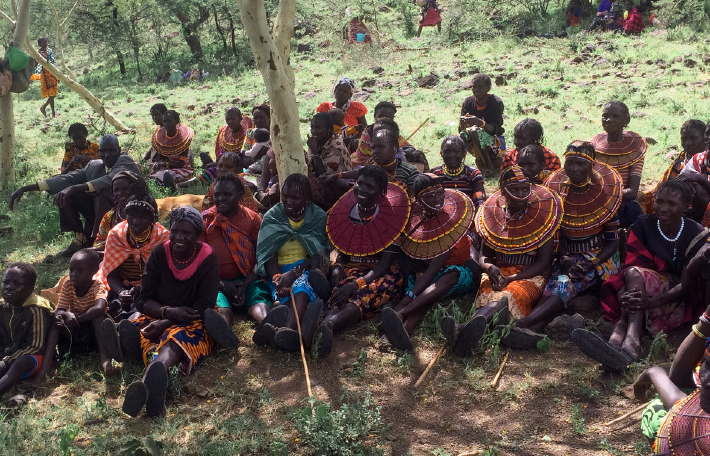Praying for the UnreachedSýnishorn


More than 3 billion people worldwide don’t have access to local churches, pastors, or Bibles in their native languages. They need to hear the good news! Join believers from around the world as we pray to reach those who’ve never heard the gospel.
Throughout the New Testament, Scripture refers to "people groups", or “nations” (Greek: ethnos), as the primary way of describing the diversity of human life God created and for which Jesus Christ was crucified and resurrected. One of the clearest pictures of this diversity among the people groups is in the seventh chapter of Revelation: "After this, I looked, and behold, a great multitude that no one could number, from every nation, from all tribes and peoples and languages, standing before the throne and before the Lamb, clothed in white robes, with palm branches in their hands, and crying out with a loud voice, “Salvation belongs to our God who sits on the throne, and to the Lamb!”" – Revelation 7:9–10
The Bible does not see people primarily as citizens of countries, but rather as members of “tribes and peoples and languages.” Evangelization and discipleship among all peoples is therefore of utmost importance.
There are more than 17,000 people groups in the world today. The gospel has reached roughly 10,000 of these biblical “nations.” What exactly does that mean? Each of these people groups has an indigenous church capable of evangelizing its own culture. That leaves nearly 7,000 people groups without a vital, reproducing church. These are considered unreached people groups.
That does not necessarily mean that there are no believers or churches among these people groups. There could be small groups of worshiping believers, but, without outside help, they would not be able to reproduce the church within their own culture.
An organic term for this kind of reproduction is “church planting.” The gospel message is the seed; the people and their culture are the soil, and the church planter or evangelist is the sower of the gospel seed. Just as in farming, there must be good seed, soil that is prepared to receive that seed, and sowers dedicated to the task. A deficiency in any of these areas will result in a poor crop or no crop at all.
Any farmer will tell you that preparing a new field for planting is hard work. The same is true when it comes to planting the seed of the gospel in an unreached people group. Their cultural soil will likely be difficult to till and resistant to the seed. The sowers may be few.
Often just a small patch of the field can be planted at first, but with faithful perseverance, the planting will expand. The gospel seed will permeate the people group’s culture, and the church will begin healthy reproduction. A people group is said to have been “reached” when the indigenous church is healthy enough to reproduce within its own culture without substantial outside assistance. That’s our goal.
That’s what your prayers are helping to accomplish.
We invite you to continue the practice of prayer with this free resource. 10 Tips For Praying Daily
About this Plan

More than 3 billion people worldwide don’t have access to local churches, pastors, or Bibles in their native languages. They need to hear the good news! Join believers from around the world as we pray to reach those who’ve never heard the gospel. Prayer Guide includes: background information about each region of the world, details about specific unreached people groups, and ways to pray strategically for people in each region.
More








